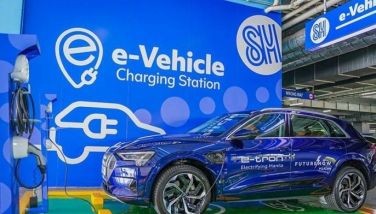Enterprise in adversity
UNICEF and the World Health Organisation report that up to 7 million Filipinos do not have access to toilets or treated water. Walls, trees, beaches and rivers meet the needs of desperate people who sacrifice their dignity every day. A larger number have no employment. Responses to such adversity range from shock to fatalistic acceptance. Part of the answer lies in harnessing enterprise for social development.
Not everyone can access a CR in a mall or gas station or feign being a customer in a fast food joint. Some are fortunate enough to have a friendly or business minded neighbour who allows access to their meagre but valued facility. Imagine instead a government approved model and standard for public CR/Washrooms, with solar powered lighting and heated water, operated by a small scale entrepreneur and tended by employees drawn from the community. A set, affordable, fee makes the project a bankable proposition too. Imagine also your relief as you spot the CR-KO logo on your next long road journey.
This is one potential example of true social enterprise rather than well meaning and often unsustainable livelihood projects dreamt up by people who want to do good but don’t know how to run a good business. Many schemes involve the making and selling of products, mostly in urban areas, rather than improving social outcomes. Some lack market research or rely on the social network of well to do patrons who urge friends to buy trinkets that are soon forgotten.
There are around 70,000 social enterprises in the UK, employing over 2 million people and contributing more than 1.7 trillion Pesos to the economy annually. Half of these enterprises carry out contracts for the Government such as delivery of services to people. All of them are run on the basis of having a clear social purpose, generating a profit and reinvesting the surplus to enhance their mission. Discipline, hard work, uncertainty and courage that go with running a business also feature in a social enterprise.
The UK has worked closely with organisations such as GoNegosyo and Gawad Kalinga to inject essential knowledge, practice and skills, targeting the young, women as well as people moving into second careers.
For over 5 years, The British Council in the Philippines has focused on capacity building to address lack of business skills of some 500 would be social entrepreneurs. 25 volunteers from the UK will, this year, work with 45 Filipino entrepreneurs to deliver better outcomes. With EU funding, social enterprise capability will be enhanced by the British Council in Mindanao.
There is a role for government in nurturing social enterprise. Definitions as to what is a charity, a cooperative or an incorporated company as well as appropriate tax regimes can affect the viability of commerce that benefits the community. Grants can kick start a venture but inherent qualities of the business model attracts conventional funding from the financial market. Incubators and hubs have their place too to nurture and motivate entrepreneurs. Policy decisions for government include being willing to deliver public services through private enterprises that have a social mission. Our experience shows that implementation of government programmes is faster when in the hands of social enterprises rather than just relying on the bureaucracy.
The success of social enterprise in Britain can be replicated in the Philippines. Social housing, especially in cities where ordinary people are priced out of the market, is essential here. Formal credit unions could take the place of 5-6 lenders. Managed child care centres could take out the worry working parents have when they leave their children in uncertainty. Health programmes such as vaccination drives or information campaigns can go viral in private hands faster than using the patchy network of clinics. Mobility support, care for vulnerable people and other social services are increasingly delivered by social enterprises in Britain.
Lateral thinking has helped communities. Electricity generation in rural areas by small enterprises has worked in the UK because the market mechanism allows selling into the grid and the revenues are recycled to fund community needs which would otherwise not be commercially viable. Similar models are in place providing transport links to isolated areas by using the profits of social enterprises to fund what would otherwise be a loss-making endeavour.
History records the eureka moment arising from contemplation in the washroom. Wherever you are reading this, maybe your moment of inspiration from adversity has come. Perhaps you have what it takes to run a real business that delivers positive social outcomes. There is UK experience and expertise we can share with you.
* * *
(Asif Ahmad is the British Ambassador to the Philippines)
- Latest
- Trending

























